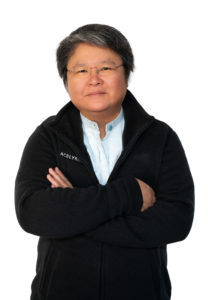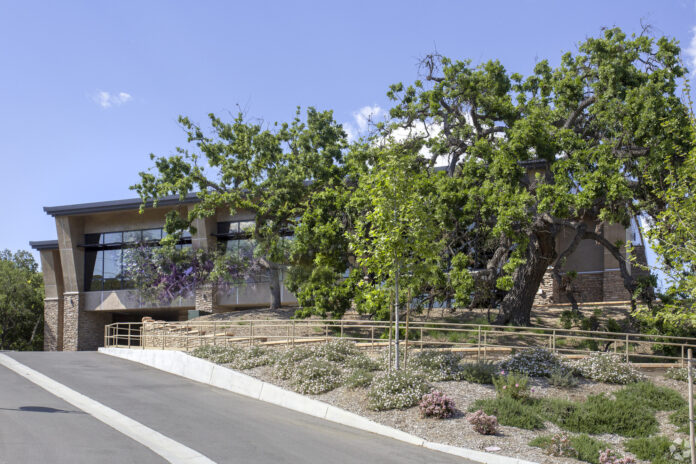A new name has joined the ranks of publicly traded health care companies in the San Fernando Valley and environs: Agoura Hills-based immunology company Acelyrin Inc., which began trading May 5 on the Nasdaq under ticker symbol SLRN after netting $540 million through its initial public offering.
Acelyrin was founded in late 2020 as a clinical biopharmaceutical company focused on the development of immunological therapies. But unlike many other immunology companies whose founders develop specific drug platforms in the lab and then seek to commercialize them, Acelyrin has been focused primarily on acquiring promising drug platforms and taking them through the later stages of development and clinical trials – in other words, accelerating drug development.

As Acelyrin founder and chief executive Shao-Lee Lin has framed it, the company’s mission is “to identify, acquire and accelerate the development and delivery of therapies with the potential to provide clinically meaningful, differentiated benefits to patients based on the science of the targets or characteristics of the molecules.”
Earlier in her career, Lin served as the first chief scientific officer and head of research and development at Dublin, Ireland-based pharma giant Horizon Therapeutics. Thousand Oaks-based Amgen Inc. is now trying to complete its $27.8 billion acquisition of Horizon.
Traditionally, it has been the role of giant pharmaceutical companies like Amgen to license drugs in their early stages of development from startup companies and take them through the clinical trial and commercialization phases. But these pharma giants typically have a portfolio of drugs and drug platforms designed to treat a wide variety of diseases and conditions. Acelyrin – at least initially – is more focused on immunotherapy drugs, according to the company’s prospectus that preceded the initial public share offering.
And most of the pharma giants have huge laboratories and research teams that formulate new drugs, something Acelyrin is not focused on.
Raising money
What Acelyrin has focused on is raising money – lots of it.
Acelyrin raised $558 million in just 21 months, including a series B round of $250 million in November 2021 and a series C round of $300 million just 10 months later in September of last year. That $300 million raise came at a time when many startup pharma companies had difficulty raising money.
Acelyrin wasted little time in putting some of that capital to use. In January, Acelyrin acquired Bethesda, Maryland-based immunotherapy company ValenzaBio Inc.; financial terms of that deal were not disclosed. ValenzaBio had a drug in an early-phase study to treat thyroid eye disease and another drug in pre-clinical trial phase to treat chronic urticaria, a skin allergy condition that can serve as an indicator for other internal diseases.
At the time, Lin said of the acquisition, “We will continue to look for additional ‘diamond in the rough’ opportunities as we pursue the acquisition, development and delivery of transformative medicines for patients.”
This month’s initial public offering netted Acelyrin another $540 million up front. The total offering was 34.5 million shares at $18 a share, or $621 million, but 4.5 million of those shares (worth $81 million) were claimed by the offering underwriters.
Investors immediately welcomed the addition of Acelyrin, driving up its share price to $23.50 on the first day of trading on May 5. Shares continued their runup through May 11, when they closed at $25.37. The stock then gave back much of its gains, closing on May 15 at $21.27 a share. That gave the fledgling public company a valuation of $2.24 billion.
Drug pipeline
Flush with all this money, Acelryin is now working on developing three immunology drugs in its pipeline.
Its lead drug, izokibep, is in late-stage clinical trials. The company announced in January preliminary results from a Phase 2b/3 study that’s considered an interim step between the standard Phase 2 clinical trial that determines the ideal dosing parameters and safety profiles of a drug and the full-scale Phase 3 clinical trial study that compares the drug to existing standard treatment across a wide population sample.
Acelyrin is aiming to use izokibep in patients with moderate-to-severe hidradenitis suppurativa, an autoimmune disease characterized by inflammation of the exocrine glands that causes skin abscesses, pain, scarring and other problems. Because of its small size, izokibep can be delivered in higher concentrations and on a more targeted basis than the monoclonal antibodies that have been the traditional treatment.
The company had previously tested for the effectiveness of the drug in treating patients with psoriatic arthritis.
Another drug in Acelyrin’s pipeline is lonigutamab, which is being designed to treat thyroid eye disease. The third drug is as of yet unnamed; it’s a monoclonal antibody designed to inhibit the activation of mast cells that regulate immune response. In this case the drug is aimed at containing the immune response involved with an allergic skin condition known as chronic urticaria.
